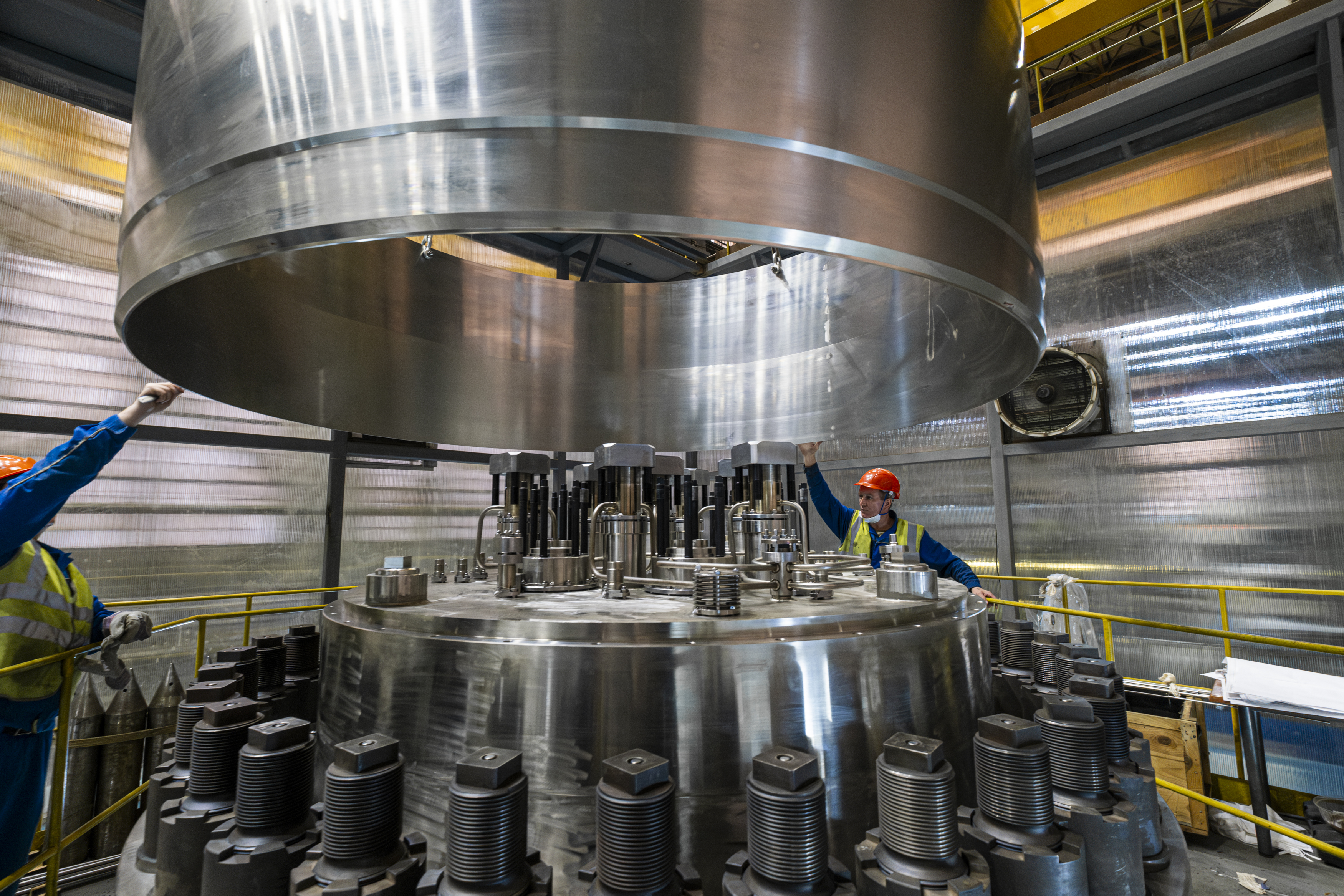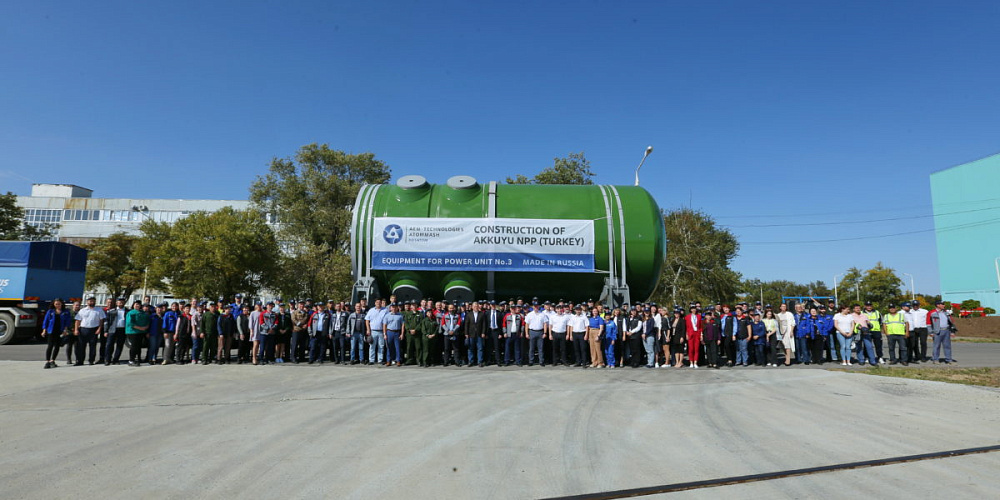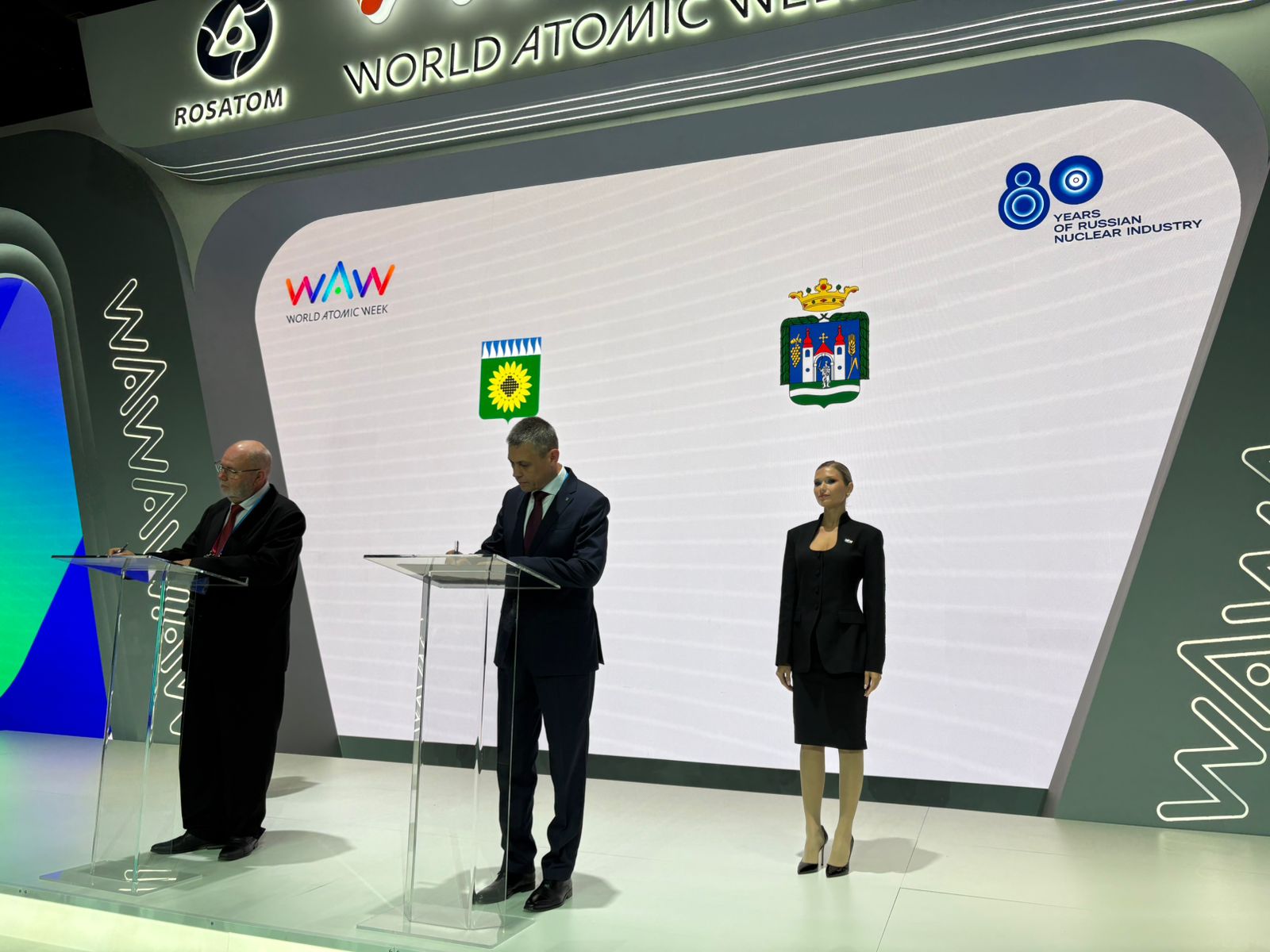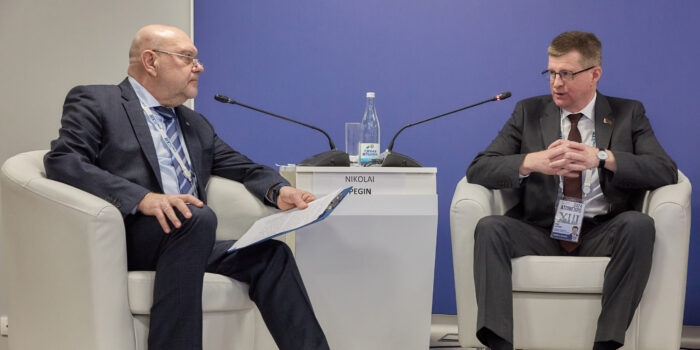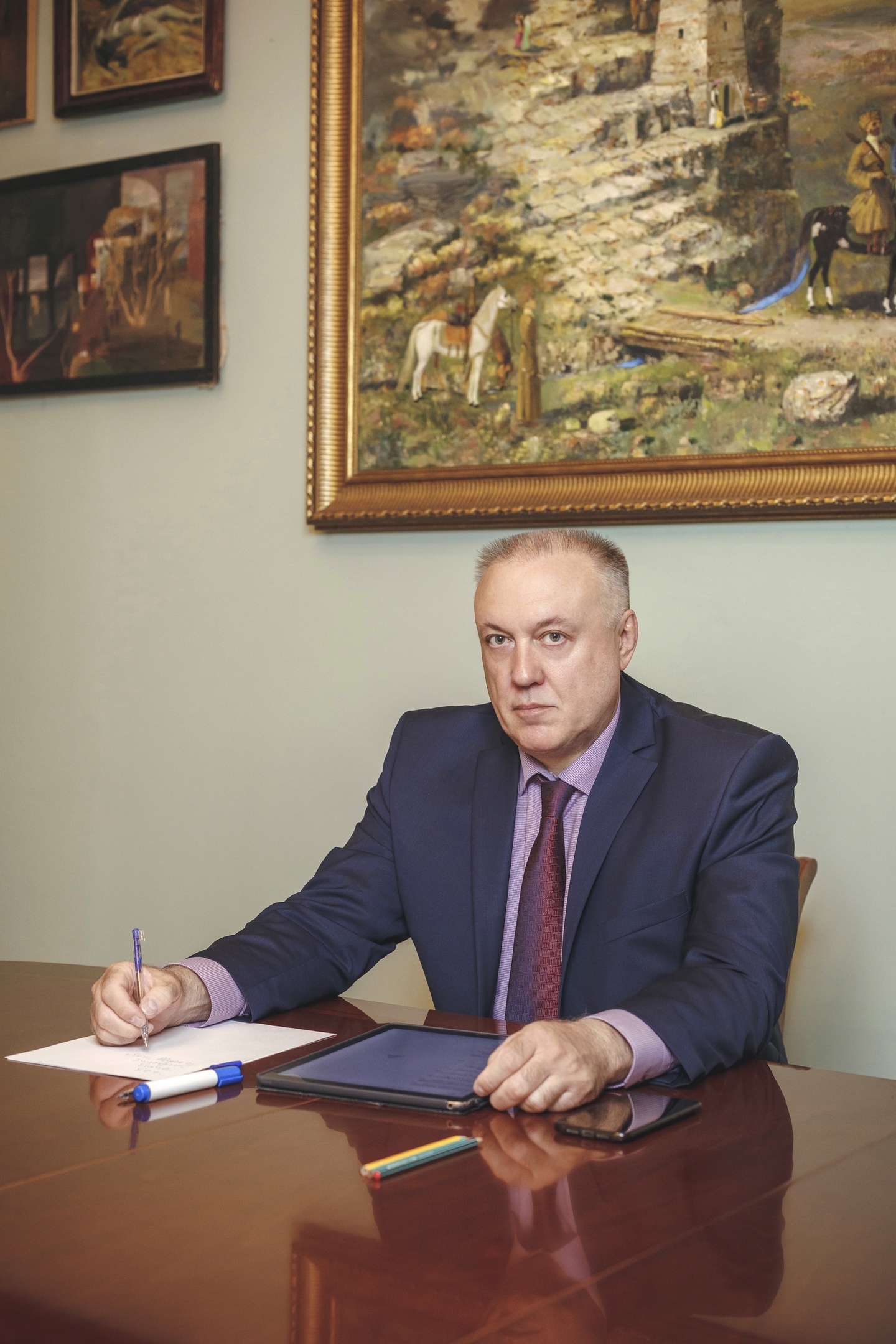The
ZiO-Podolsk plant (Rosatom's Mechanical Engineering Division) has successfully
completed the trial assembly of the second RITM-400 unit intended for the most
powerful nuclear icebreaker Rossiya. It will allow year-round shipping of
vessels in the eastern sector of the Northern Sea Route and will give a strong
impetus to the development of the Arctic.
The
trial assembly is the final stage of manufacturing the nuclear vessel’s “heart”.
During this stage, all the components are thoroughly tested for their
compatibility before they are transported to the shipyard.
The main power unit of the icebreaker consists of two RITMs-400. The first reactor was manufactured in May 2025. Due to the exceptional power of these reactors, which will enable the icebreaker to break ice up to four meters thick, the reactors have been named after two legendary Russian heroes, Dobrynya Nikitich and Ilya Muromets.
"Rosatom's Mechanical Engineering Division supplies reactor equipment to the entire newest nuclear icebreaker fleet of the country. The RITM-200 units we have produced already ensure the operation of Project 22220 nuclear icebreakers on the Northern Sea Route. Now we have completed the RITM-400 set for the Rossiya nuclear icebreaker, which will become the most powerful icebreaker in the world. In total, taking into account the two giant reactors, we have manufactured 12 RITM series reactor units. Another 14 are in the works for the nuclear icebreaker fleet and SMR projects," said Igor Kotov, head of Rosatom's Mechanical Engineering Division.
It took three years to manufacture a set of the most powerful propulsion units. One hundred know-how methods were employed, and seven innovations were registered as patents.
“The RITM-400 is an advance version of the
RITM-200. Its distinctive feature is the arrangement of steam generators inside
the vessel, which has resulted in a substantial reduction in the equipment's size
and weight. These two factors are of utmost importance in shipbuilding, we have
done it and the reactor is the first-of-a-kind. In a timeframe, very short for
such an ambitious project, we constructed two reactor units that will revolutionize
logistics along the Northern Sea Route”, said Anton
Lebedev, the head of ZiO-Podolsk.
The
Northern Sea Route (NSR) is
the shortest shipping route connecting the western part of Eurasia and the
Asia-Pacific region. This is a national transport artery of Russia with a long
history of development. Administratively, the NSR begins at the boundary
between the Barents and Kara Seas (the Kara Gate Strait) and ends at the Bering
Strait (Cape Dezhnev). The route runs approximately 5,600 kilometers.
The icebreaker assistance has been
organized to ensure safe navigation along the Northern Sea Route. Russia is the
only nation with a nuclear icebreaker fleet. It is operated by Rosatom’s
Atomflot.
The icebreaker fleet of Atomflot
consists of eight nuclear icebreakers: 50 Let Pobedy, Vaigach, Yamal and
Taimyr, the flagship nuclear icebreaker Arktika (Project 22220), nuclear
icebreaker Sibir (Project 22220), Ural and Yakutiya, both of which are also
part of Project 22220.
Underway is the construction of
Project 22220 nuclear icebreakers Chukotka and Leningrad. Upon completion of
pre-construction activities, the construction of Project 22220 Stalingrad
icebreaker will begin.
The RITM-400 unit is to power the next generation of
nuclear icebreakers, which will be the most powerful icebreakers in the world.
This is an advancement on the RITM 200 design, with a thermal power output of
315 megawatts, which makes this unit more powerful than any ship-based nuclear
unit.
The super-powerful nuclear
icebreaker Rossiya
is the flagship icebreaker of the new Project 10510. It will be equipped with
two RITM-400 units. The construction of the vessel is underway in the Far East.
Once operational, the icebreaker will provide year-round icebreaking navigation in the eastern sector of the Northern Sea
Route for the commercial fleet.
The Mechanical
Engineering Division of Rosatom boasts a wealth of expertise in manufacturing
RITM series reactor units. To date, 10 RITM-200 units have been manufactured
and delivered for the Project 22220 icebreakers Arktika, Ural, Sibir, Yakutia,
and Chukotka. Eight of these units have already demonstrated their operational effectiveness
in the harsh Arctic environment.
In
2018, the Russian Government appointed Rosatom the NSR (Northern Sea Route)
infrastructure operator. The corporation oversees the federal project
"Development of the Northern Sea Route" also being involved in the
plan for the development of the Northern Sea Route until 2035 and the
initiative for the socio-economic development of the Russian Federation until
2030 "Year-Round Northern Sea Route" approved by the order of the
Russian Government. One of Rosatom’s strategic goals is to make the NSR an
effective transport artery connecting Europe, Russia and the Asia-Pacific
region. In December 2024, a federal project was approved to develop the «Great»
Northern Sea Route, a transportation corridor from St. Petersburg and
Kaliningrad to Vladivostok.
The comprehensive development of the Russian Arctic is a national strategic priority. To increase the NSR traffic is crucial for the success of the outstanding tasks. This logistics corridor is developing due to cargo shipping on a regular basis, building of new nuclear icebreakers and modernization of the relevant infrastructure. Rosatom is actively involved in these efforts.

